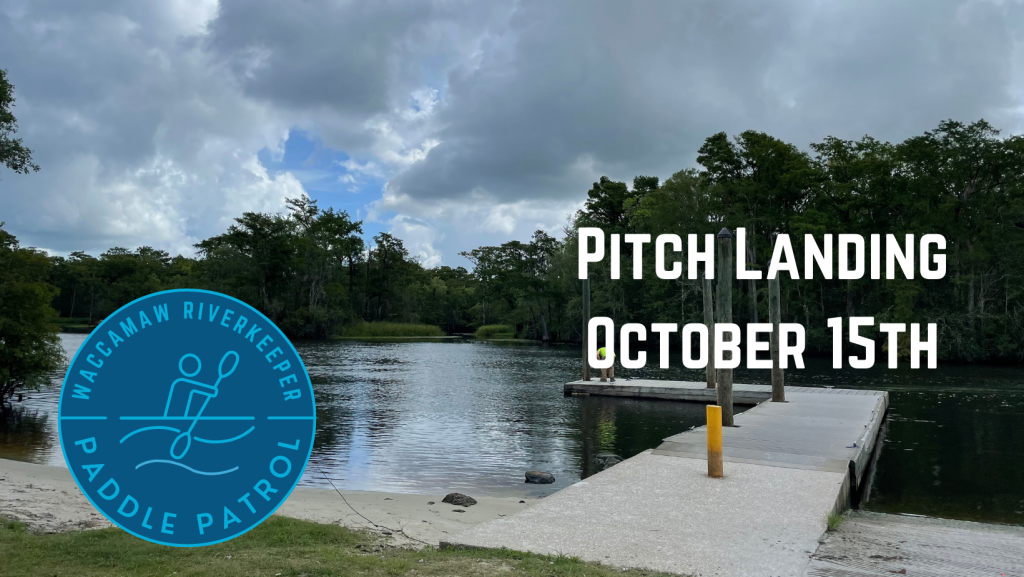September Waccamaw Riverkeeper Paddle Patrol
Up until last month, I had only paddled in North Carolina twice. TWICE. Part of the reason for that is access. There are multiple accesses at Lake Waccamaw, but on the 43 mile North Carolina stretch of the Waccamaw River from the Dam to the state line, there is only one public boat landing at the Pireway Boat Ramp.
I had been to Pireway countless times for water monitoring, cleanups, and a bass fishing tournament, but I had never ventured onto the water. Our September Paddle Patrol was my opportunity to remedy this tragedy.
We met early with kayaks and trash pickers. Only three of us went out that morning. Y’all missed out! It was the perfect morning for a paddle – cool and slightly overcast with smooth quiet waters.
We passed fishermen as we paddled upstream. Pireway is a popular landing for fishing both from the quiet banks and from the water. And the fish were jumping that morning. No doubt there would be some fish dinners that evening.
Fish in the Waccamaw have fed families for generations. But with increasing concerns over contamination, it is harder to support a family through fishing. In North Carolina there is a statewide fish consumption advisory from the Division of Public Health for mercury. For fish high in mercury, like largemouth bass, no more than one meal per week is advised. For sigh low in mercury, like bluegill, up to 4 meals a week is advised.
Mercury bioaccumulates in fish. Released into the air by burning fossil fuels, mercury then deposits in our waterways and is absorbed by aquatic organisms. As those organisms are consumed, the mercury travels up the food chain and is stored in the tissues of larger fish at higher and higher levels.
Mercury poisoning is most dangerous for developing children. It affects nerve cells in the brain and can lead to abnormal development. This is why pregnant women are advised to not eat fish high in mercury during pregnancy.
Contamination by mercury is prevalent in fish throughout the country – in both freshwater and saltwater. While water quality data collected by volunteers at Pireway over the past 10 years shows relatively healthy water, there have been some observation of potential pollution issues at the site. Erratic and high conductivity measurements over the past several years indicate a source of pollution upstream. For your average recreator, though, the water seems fine. High bacteria is seldom identified and typically is the results of a major rain event.
Our paddle was quiet and uneventful. We only collected a single bag of trash and saw more beauty than anything else. The river was quiet that Friday morning – apart from the frustrated chatter of a congregation of White Ibis we encountered in the swamp.
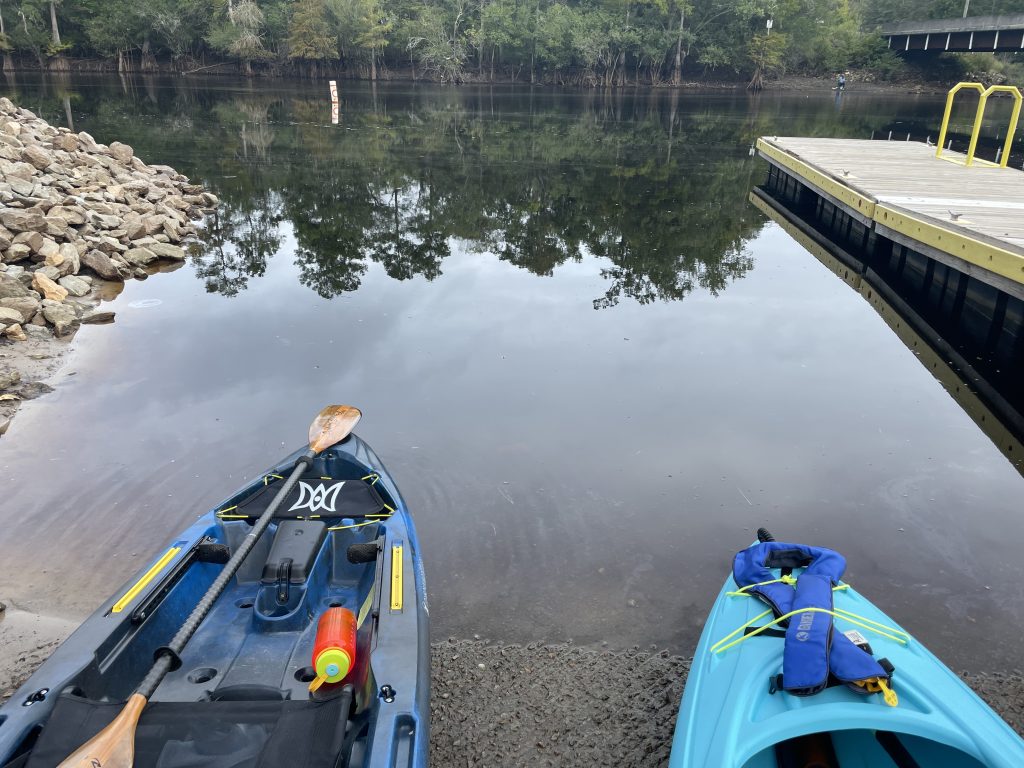


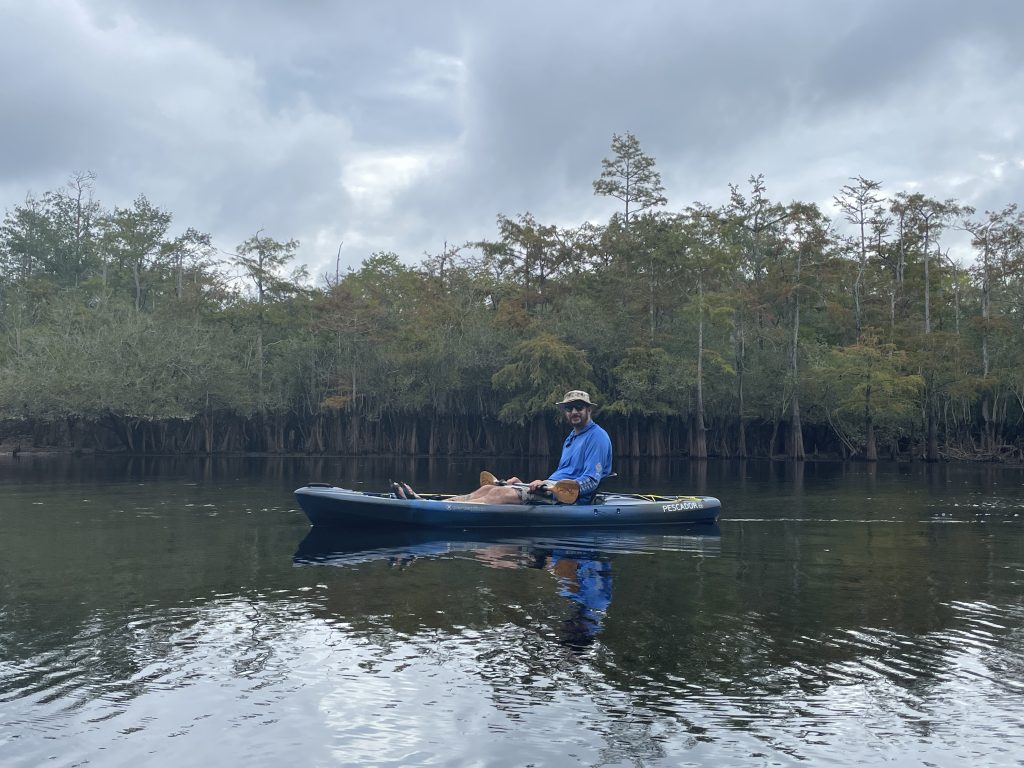
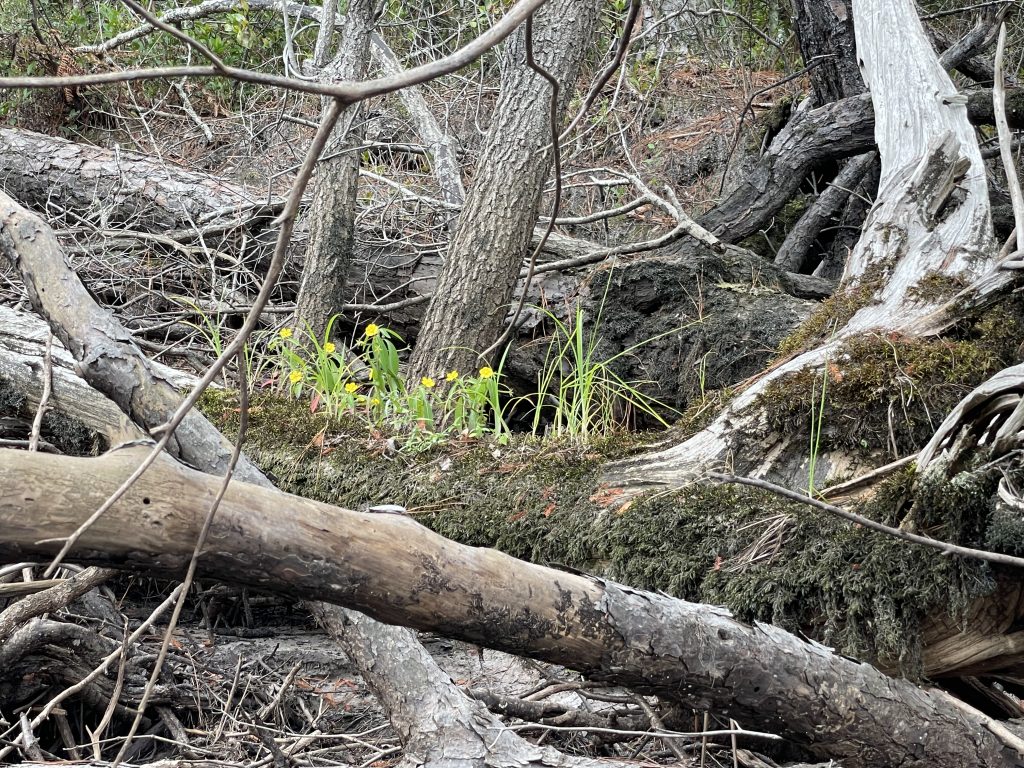
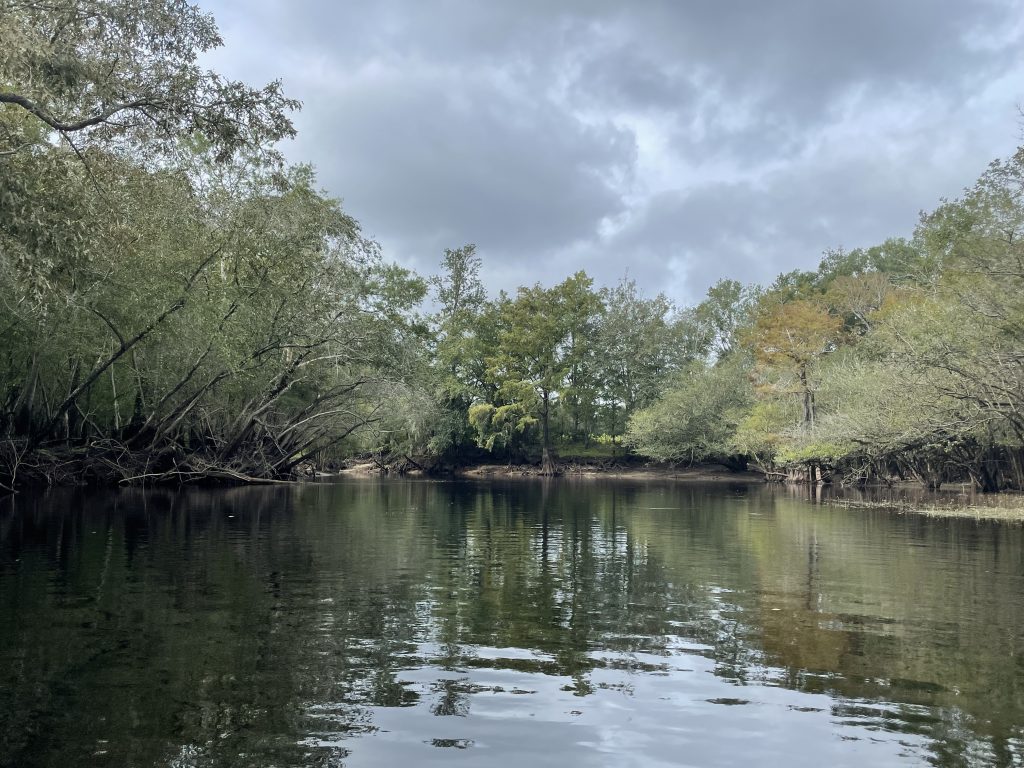
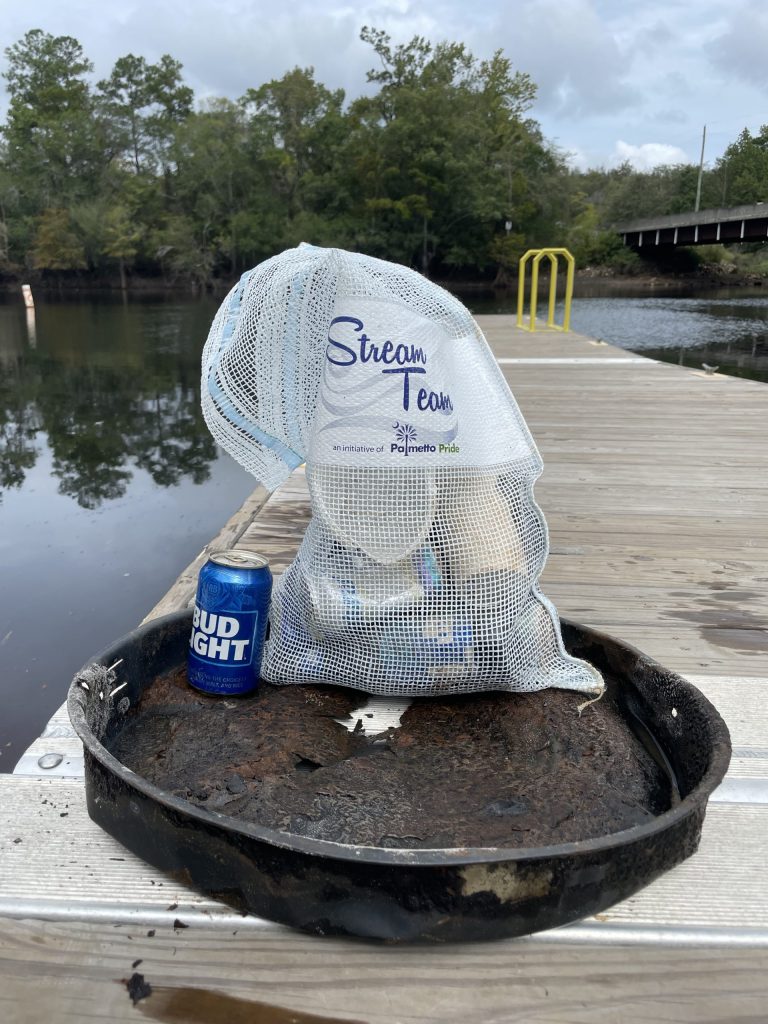
My first paddle at Pireway did not disappoint and I look forward to more paddling in North Carolina in the coming years. I hope the future will also bring more river access to North Carolina so that everyone can enjoy the beauty of the Waccamaw as it winds through swamps. The Waccamaw has much to offer and I hope you will join me on a future paddle. Be sure to visit our calendar to see where our Paddle Patrol is headed monthly every third Friday. See you on the river!
